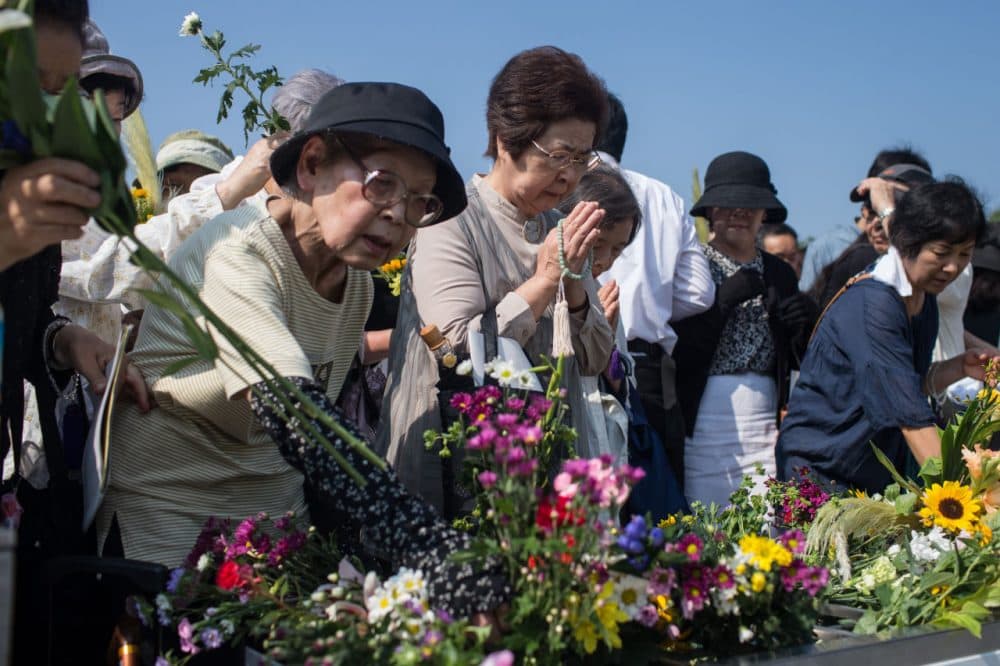Advertisement
Why Did The U.S. Drop Atomic Bombs On Japan?
Resume
As Japan restarts its nuclear industry, the country is also marking the 70th anniversary of the end of World War II and the American atomic bombs that devastated Hiroshima and Nagasaki. The anniversary revived the debate over President Truman's decision to use nuclear weapons, which this past Sunday, Pope Francis seemed to criticize.
Here & Now's Jeremy Hobson looks at the question of why the U.S. dropped atomic bombs on Japan with Michael Neiberg, a renowned historian of the war.
Guest
- Michael Neiberg, chair of war studies at the Army War College. His books include "Potsdam: The End of World War II and the Remaking of Europe." He tweets @michaelneiberg.
This segment aired on August 11, 2015.